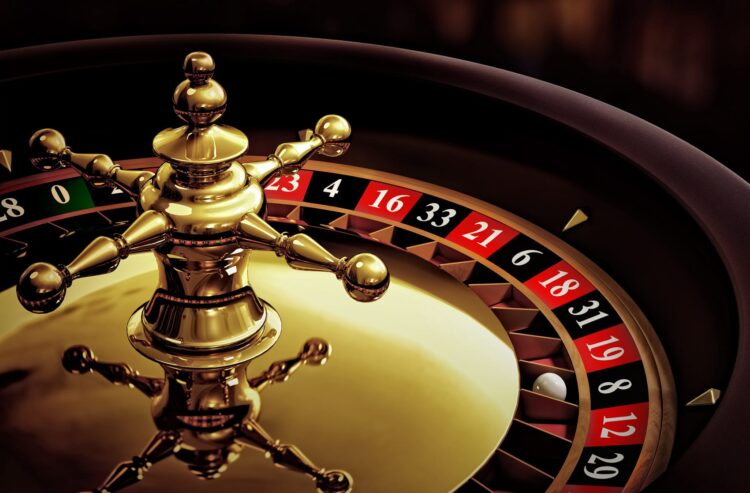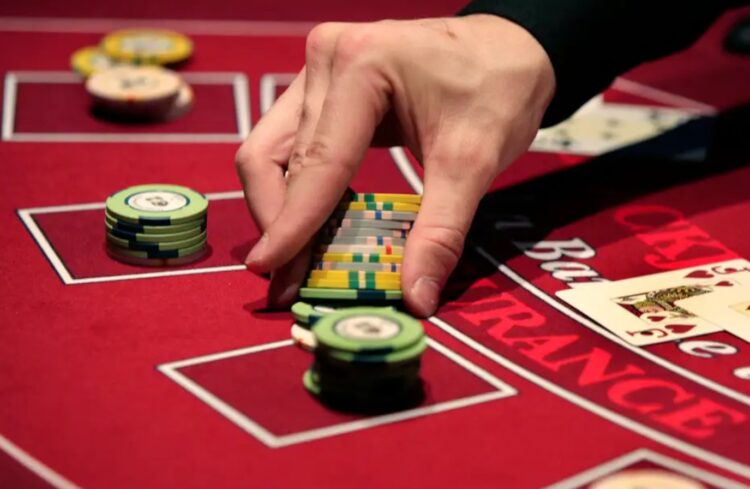
Psychopathy or gambling addiction is the psychopathological tendency to gamble, in which the affected person cannot resist the impulse to continue playing.
In recent years, the number of gambling addicts has increased significantly. Being informed and asking for help in time is the only way to get ahead and overcome the pathological addiction to gambling and betting.
The loss of a loved one, loneliness, a love affair, or simply a difficult moment, added to the great offer of casinos and bingos, contribute to lead to gambling.
Most of the time, it is the other one-a family member, friend or partner-who can alert us if we are about to cross that fine line between entertainment and addiction. But, according to the experts, while it’s very difficult, it’s important to stop and think about the amount of time you’re spending there, as well as what you’re losing.
The Diagnostic and Statistical Manual of Mental Disorders describes the following criteria to diagnose the behavior of a pathological gambler, considering the coincidence with five of them sufficient to determine the existence of compulsive behavior.

- Concern. The subject has frequent thoughts about experiences related to gambling, whether present, past or product of fantasy.
- Tolerance. Requires greater or more frequent gambling to experience the same emotion.
- Abstinence. Restlessness or irritability associated with attempts to stop or reduce gambling activity.
- Avoidance Playing to improve one’s mood or escape from problems.
- Revenge. Try to make up for losses in the game with the same game.
- Lies. He doesn’t tell the truth about the money and time he spends in bingos or casinos.
- Loss of control. Even though he proposed, he can’t stop.
- Illegal acts. The person has broken the law to get money to gamble.
- Risking significant relationships. Even though he is isolated and has conflicts with loved ones, he cannot stop.
- Resorting to others. The person turns to family, friends, or others for financial assistance as a result of gambling.

Find your way
The best way to get out of this addiction, besides containment and support, is to consult a professional. There are different centers dedicated to this pathology. The way to face the problem is going to be diagrammed by a specialist, who will seek to help the addict so that the game is nothing more than an ugly past.
Abstinence or renunciation of gambling will come as the patient discovers the real personal reason why he cannot stop the addiction of losing.
Every gambler can stop being a gambler, with patience, effort, family support, and professional help.

Doubts about pathological gambling
Casino Pilot solves some doubts related to pathological gambling:
-You don’t have to play every day to have a problem with the game. You have problems with the game if it causes you problems.
-The problem is not just financial. Gambling can cause a relationship to break down or lose important personal relationships.
-The cause of gambling is not someone else’s. Some gambling addicts blame their partners for behaving this way. To do so is to avoid responsibility for their actions, including doing what is necessary to overcome the problem.
-The problem with gambling is not overcome by paying off debts, but by overcoming addictive behavior.

Symptoms of pathological gambling
There are no obvious physical signs in pathological gambling as there are in drug or alcohol addiction. In addition, gambling addicts often hide their addiction from others: they travel long distances to play and hide it from people close to them.
You may have a problem with the game if:
-You play even when you don’t have money: you gamble until you’ve lost all your money, then you want to get it back using card money or borrowed money.
-Your family or friends worry about you: it’s because gambling is affecting your life.
-You want to hide it: you gamble secretly and lie about what you bet or what you win.
-You lose control: you are not able to leave the gaming area when you are losing.

How to get out of pathological gambling?
Accept that you have a gambling problem
The biggest step in treating pathological gambling is to accept that you have a gambling problem.
It takes courage and strength to do so, especially when you have lost a lot of money or relationships along the way.
However, it is a necessary step, and many people who have overcome this problem have had to take it.
Overcoming the problem is not easy, although it can be done if you seek support and follow the treatment.

Make decisions and resist temptation
Before the game begins, the decision has been made to do so.
If you have the urge to gamble, stop what you are doing and call someone or think about the consequences of your actions. Don’t pay attention to the thoughts about the game and do something else immediately.
On the other hand, remember that the odds are against you. The odds are against you. Don’t see the game as an opportunity to get out of your financial problems.
Some ways to control the urge are:
- Ask the casino to stop you from entering.
- If you are addicted to online gaming, install a web page blocker of this type. In extreme cases, temporarily get rid of your laptop/computer or smartphone until you get over the problem.
- Postpone the game: tell yourself that you will play 5, 15 or 60 minutes later, depending on how much time you think you can control. As you wait, the urge to play may pass
- Seek support: call family, friends or go to groups to meet people with the same problem
- Do something else: clean up, go to the gym, watch a movie…
- Avoid isolation: find new ways to build personal relationships
- Think about the consequences and how you will feel if you fall into temptation

Control your money
You can’t play without money: get rid of credit cards, save and don’t borrow money.
Let other people take care of your money, let the bank make the automatic payments and limit the amount of cash you can take out.











